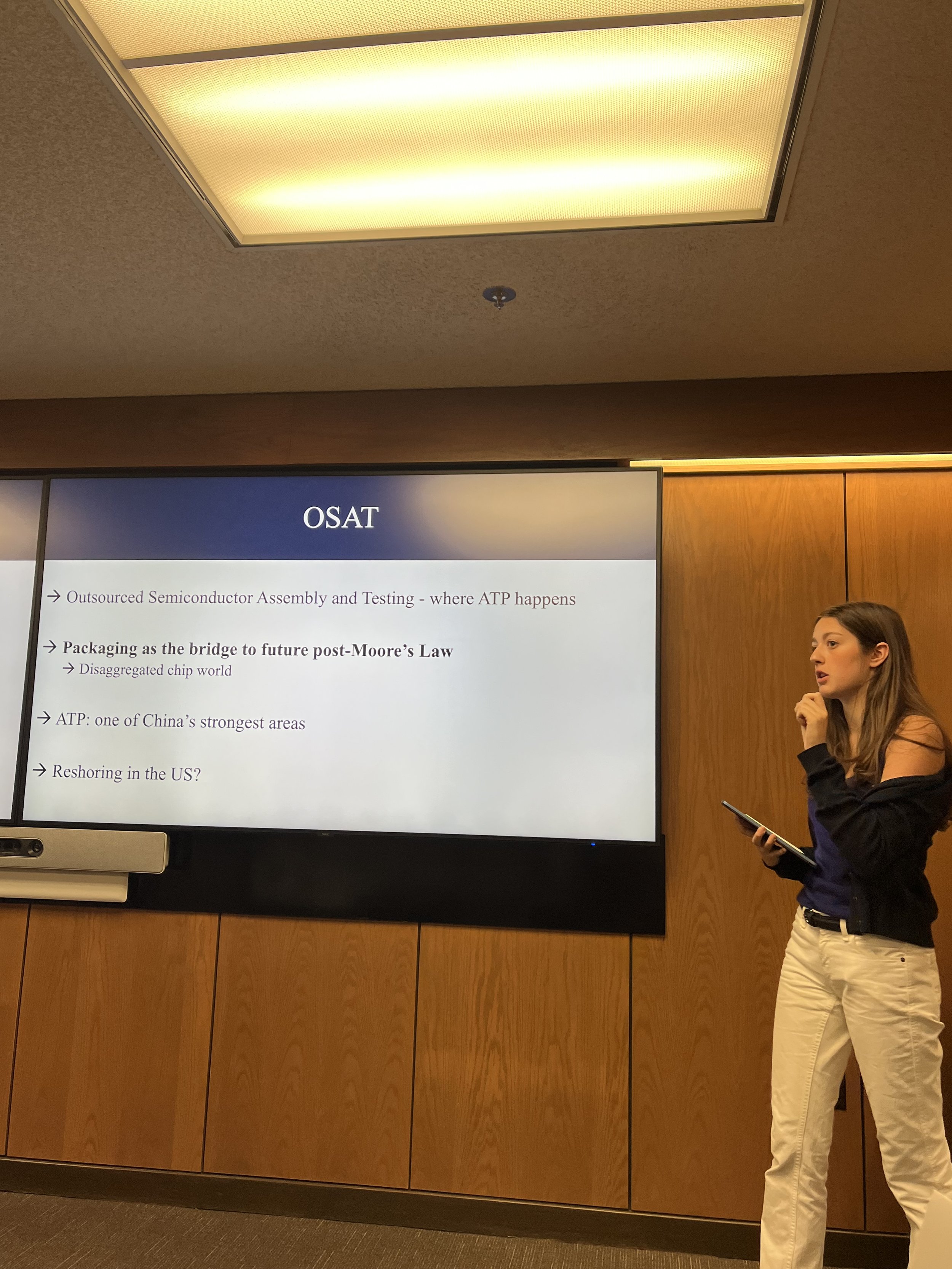
Our Work
Our latest work and conferences
-

Energy Consumption Ramifications of US-China AI Competition
U.S.-China AI competition has created a ‘race to the bottom’, where each nation’s attempts to cut each other off artificial intelligence (AI) computing resources through protectionist policies comes at a cost – greater energy consumption. The paper focuses on key protectionist policies impacting AI compute over the period of 2018 to 2023.
Paper available below.
-

How America Can Leverage Insurance to Safeguard Its Access to Advanced Chips
Attempts to replicate a complex global semiconductor manufacturing ecosystem on American soil are inefficient and costly. Instead, U.S. policymakers should seek to onshore only a minimum viable capacity of chip production as an insurance policy against emerging security risks.
Article available below.
-

The Next Frontier of Security & Technology Conference at Hoover Institution
Yale, Oxford and Stanford students hosted a seminar on AI in National Security & Semiconductor Geopolitics at Hoover Institution. Participating experts included Professor Larry Diamond, Senior Fellow at the Hoover Institution; Professor H.-S. Philip Wong, Chief Scientist at TSMC; Colonel Patrick Biggs, NSAF U.S. Army; Richard Rikoski, and more.
Program available below.
-

After the CHIPS Act: Assessing China's semiconductor indigenization
This research focuses on China’s response to the U.S. CHIPS & Science Act and its associated export controls: how might Chinese actors react, how might they pursue indigenization and countermeasures, what are the implications of those responses and how should US semiconductor policy, in turn, be adjusted.
Summary available on request.

